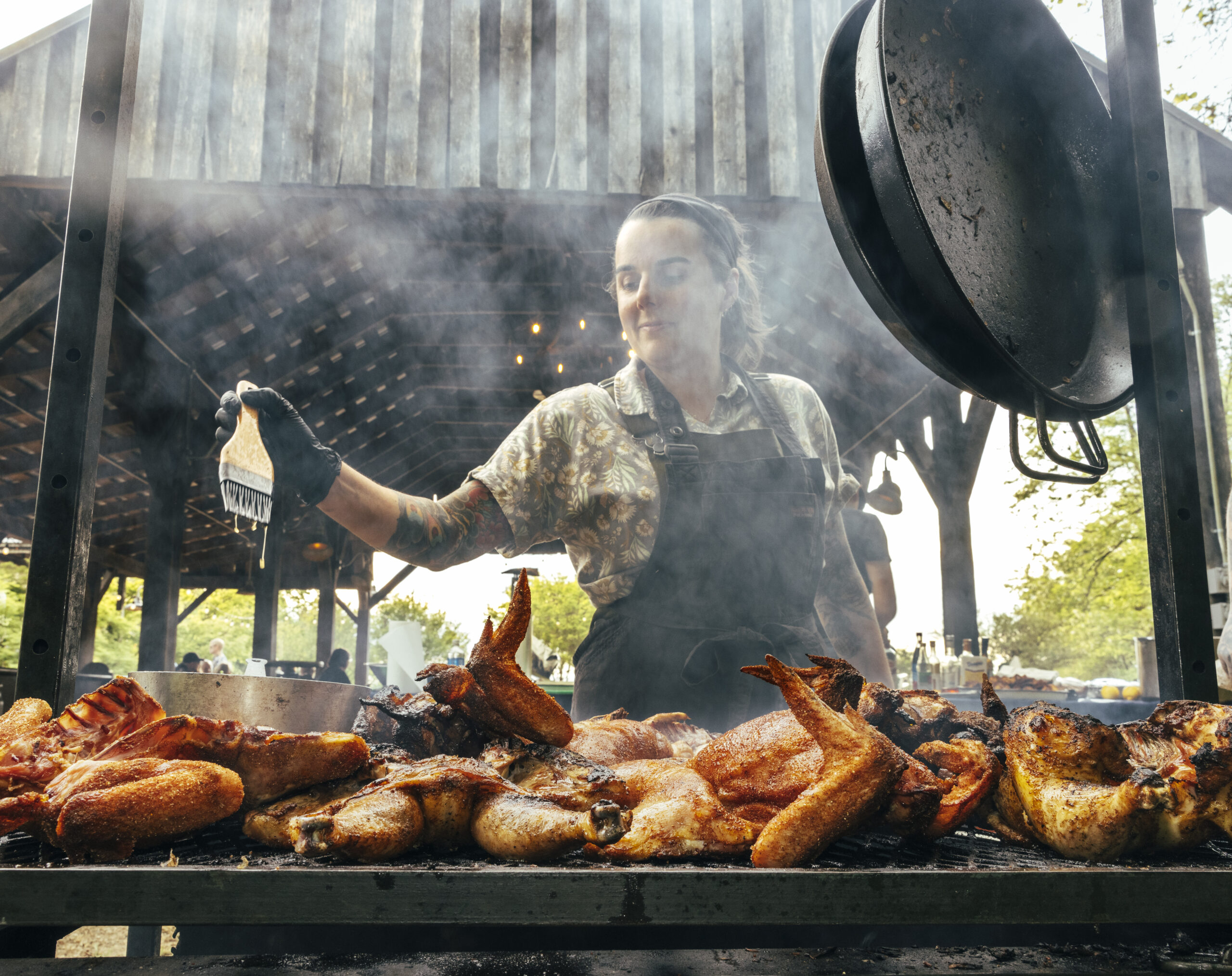
For Sarah Rennie, cooking over fire is a practice in presence, healing, and seasonal rhythms
WORDS | Sarah Golibart Gorman PHOTOS | Daniel James
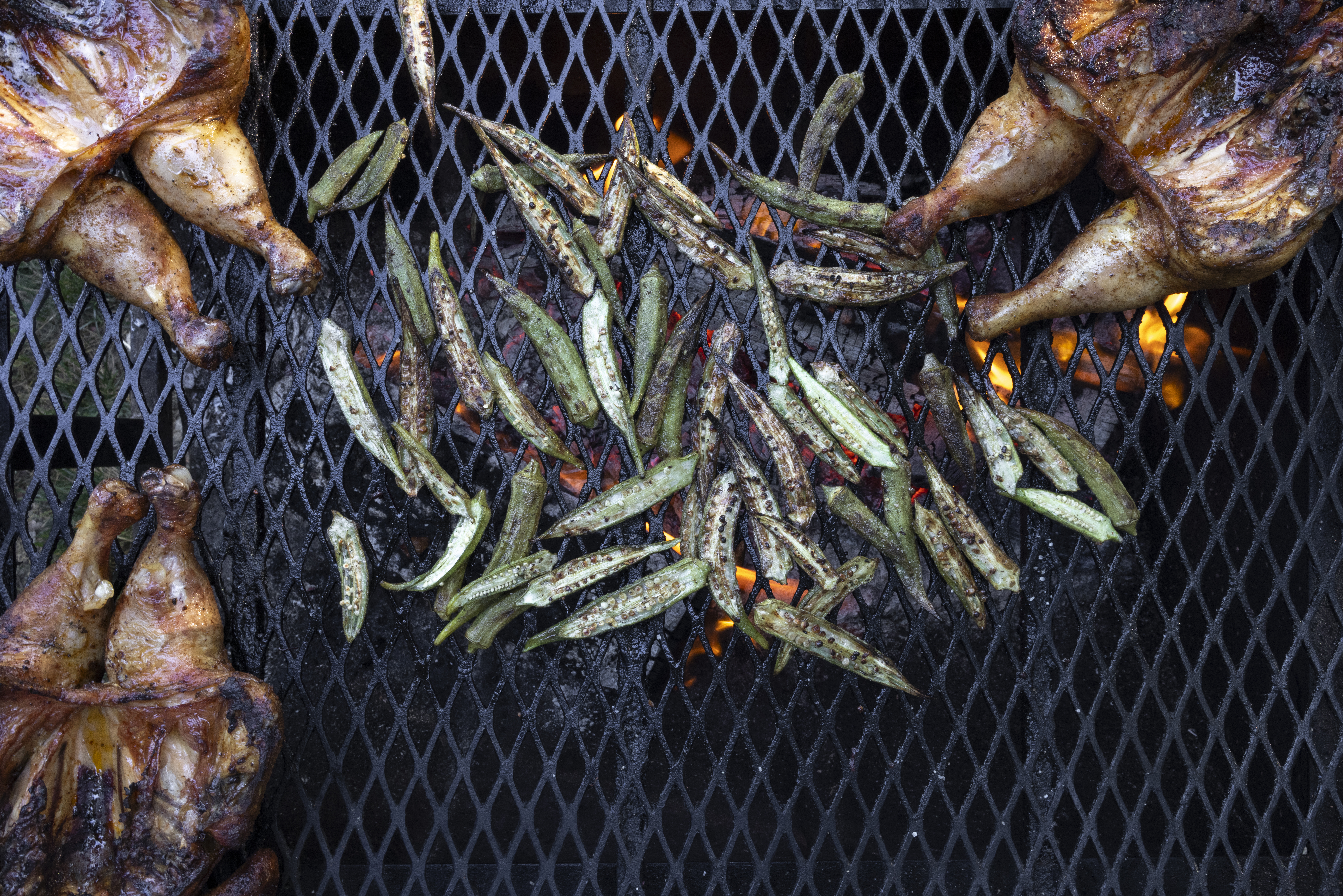
When Sarah Rennie begins a day of work, her first step is to light the fire. “I don’t even have to put anything on the grill,” says Rennie. The smell is like a magnet.
A typical menu for Two Fire Table, Rennie’s open fire catering company out of Scottsville, Virgina, might feature locally raised chickens strung from steel tripods, cabbages hung nearby to soak up smoke, or spring’s first strawberries scattered across the grate for a gentle char. Rennie dreams up multi-course experiences dictated by the seasons and flavored by fire.
Maybe the scent of it all — wood smoke, caramelized fat, roasted vegetables — pulls someone back to a family camping trip or a backyard barbecue. Or maybe it stirs something deeper, something ancient that began 1.9 million years ago when humans began cooking with fire. Yes, food brings us together, but fire brought us together first.
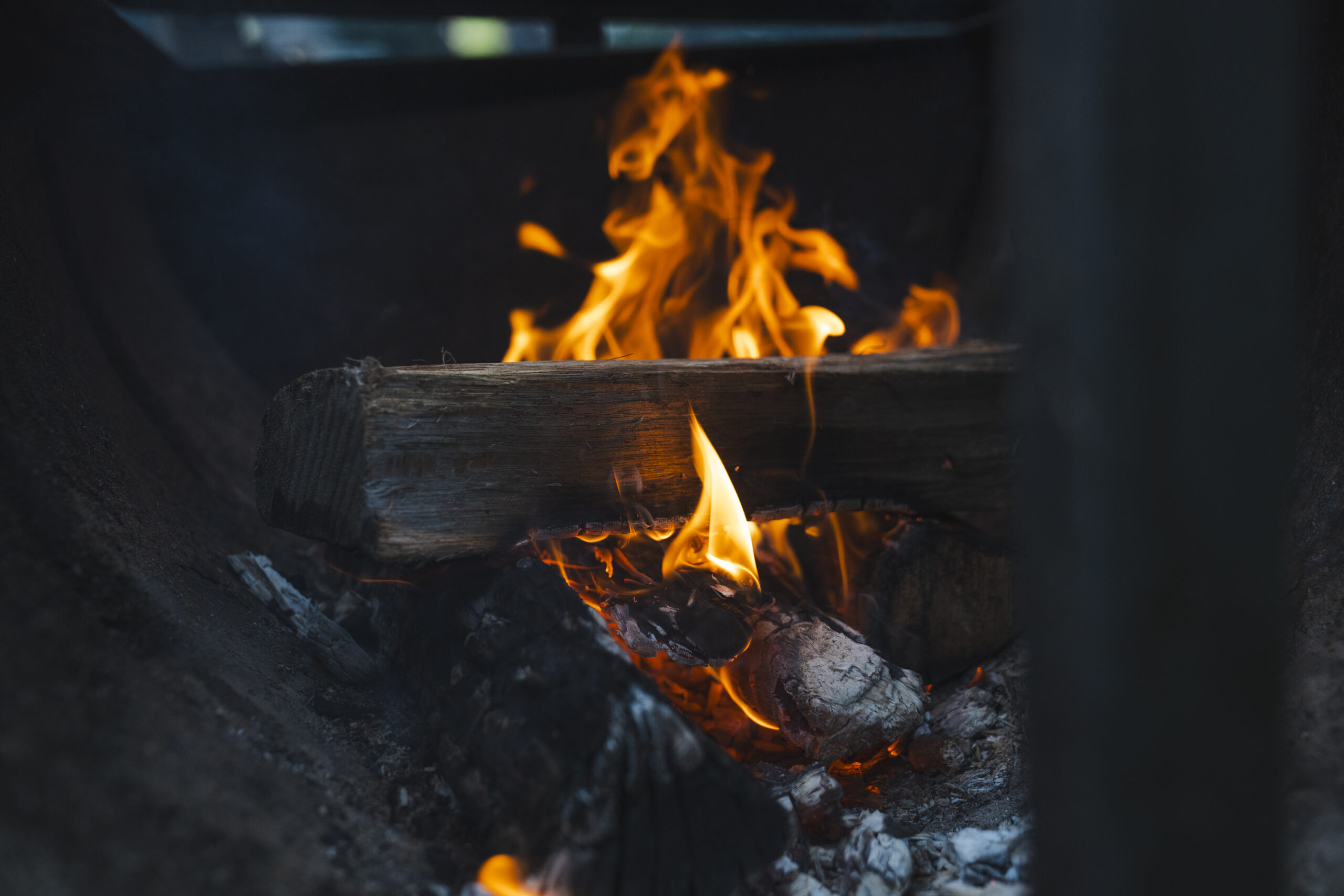
Contrary to the flame-filled mental images it conjures, open fire cooking, also called live fire or over the fire cooking, is less about the blaze and more about the coals. An open fire chef must keep their attention on not just the food, but the amount, location, and temperature of the coals heating it.
Rennie explains how this type of cooking attracts a different kind of chef than barbecue: “It’s the variety of things you can do and how deep and detailed you can get.” While barbecue requires careful seasoning and hours of tending a whole animal or cut of meat, an open fire chef can prepare a multicourse meal over varying temperatures of coals without the conveniences of a stove or oven.
And Rennie will gladly forgo those modern kitchen trappings in place of flavor. “Sometimes I feel like it’s cheating because it makes everything taste so good,” she says. Last fall, Rennie designed a Hobbit-inspired feast featuring slow roasted lamb with whole squash charred directly on the coals beneath. A dutch oven, perched on a grate above the fire, bubbled with braised rabbit farro, carrots, mushrooms and potatoes. Rennie grilled bread before generously topping it with fresh herb cream and fire-roasted mushrooms.

This was how people cooked before electricity. Historically, hearths were tended by women who started cooking fires each morning, feeding hungry mouths until day’s end. Electricity’s conveniences allowed women some freedom from the kitchen, bolstered eventually, for better or for worse, by canned and frozen pre-made meals. Cooking with fire became a novelty reserved for camping trips and backyard barbecues, with men taking over as boss of the burn.
Michael Pollan writes in Cooked that “cooking with fire remains very much a competitive male preserve,” but Rennie disagrees. “I don’t think it’s true,” she says. “Maybe I live in my own bubble, but the most popular over the fire chef right now, besides Francis Mallmann, is a woman.” That would be Sarah Glover, the Australia-based cookbook author and chef who has prepared over the fire meals for culinary greats like Martha Stewart and Gordon Ramsay. Women are stepping back into the firelight, preserving the age-old practice in more public ways, but it took Rennie years to catch sight of the glow.
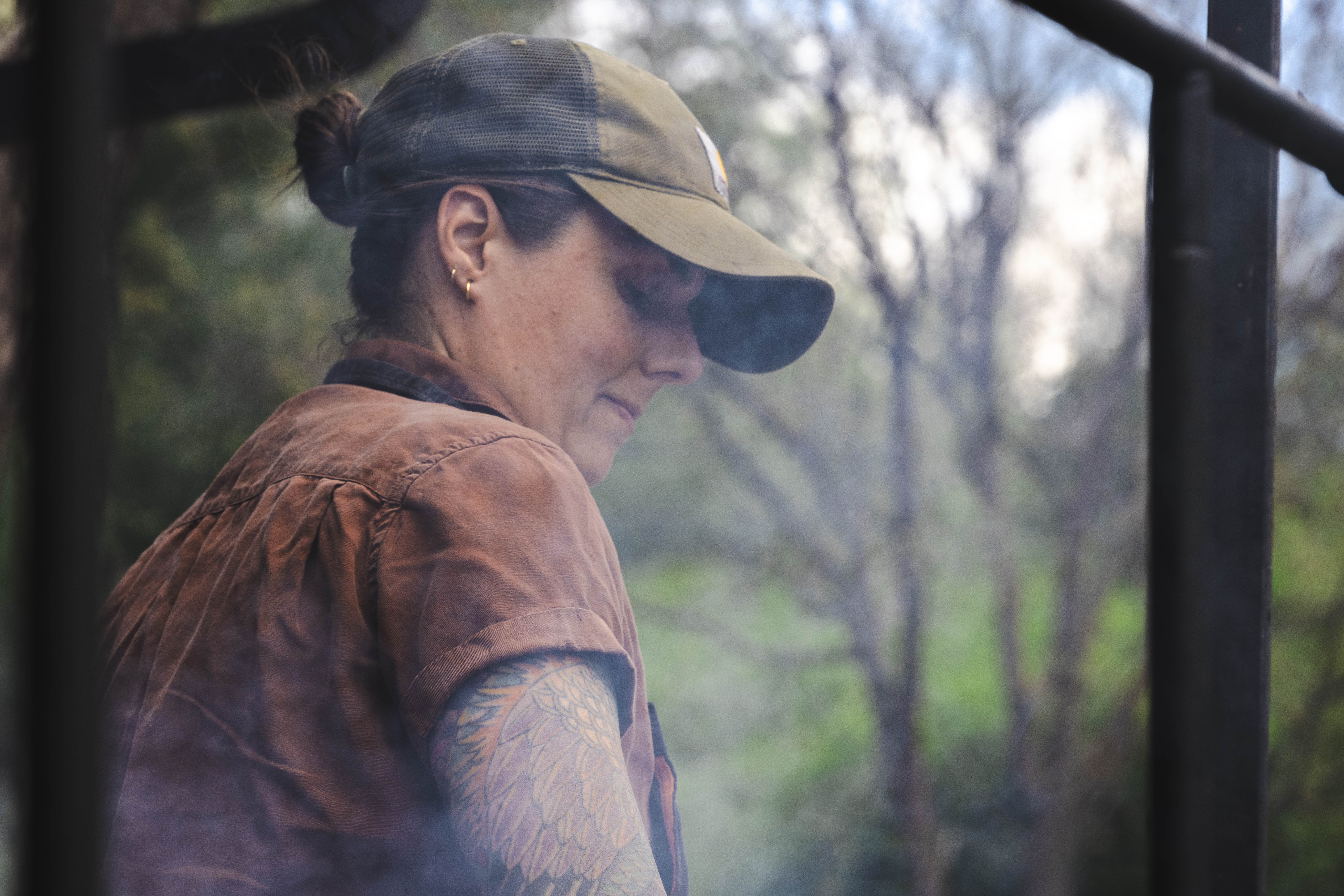
Rennie’s journey to Two Fire Table has been anything but linear. But she did grow up gathering around food. In Greenville, Tennessee, holiday meals at her grandmother’s table were heavy with garden-grown casseroles, roasts, and traditional Southern fare.
Those home-cooked spreads were balanced by a different kind of food culture: her dad’s fast food franchises — first Burger Chef, then Dairy Queen. Her mom would take her to visit the restaurants and feast on ice cream or a burger and fries, but at home, her dad’s grilled steaks were a favorite. Rennie remembers a moment when those steaks were taken to the next level. A family friend, who would go on to become Chef de Cuisine at The French Laundry, brought a compound butter with aromatic herbs and punchy bleu cheese folded in. “We put it on the steaks,” she says. “And I was like, ‘Oh, wow.’ I’m 13 or 14, and my mind is blown by compound butter.”
Despite those formative food memories, Rennie’s dad had one piece of advice about the culinary industry: “Don’t ever get into it.” And after his unexpected passing while Rennie was still in high school, she listened. For a while.
After earning a theatre degree, Rennie moved to Asheville, and enrolled in hair school — “a huge no,” she says in hindsight — but in her free time found herself drawn more to crumb than curls. Baking became the creative outlet that stuck, so she enrolled in culinary school.
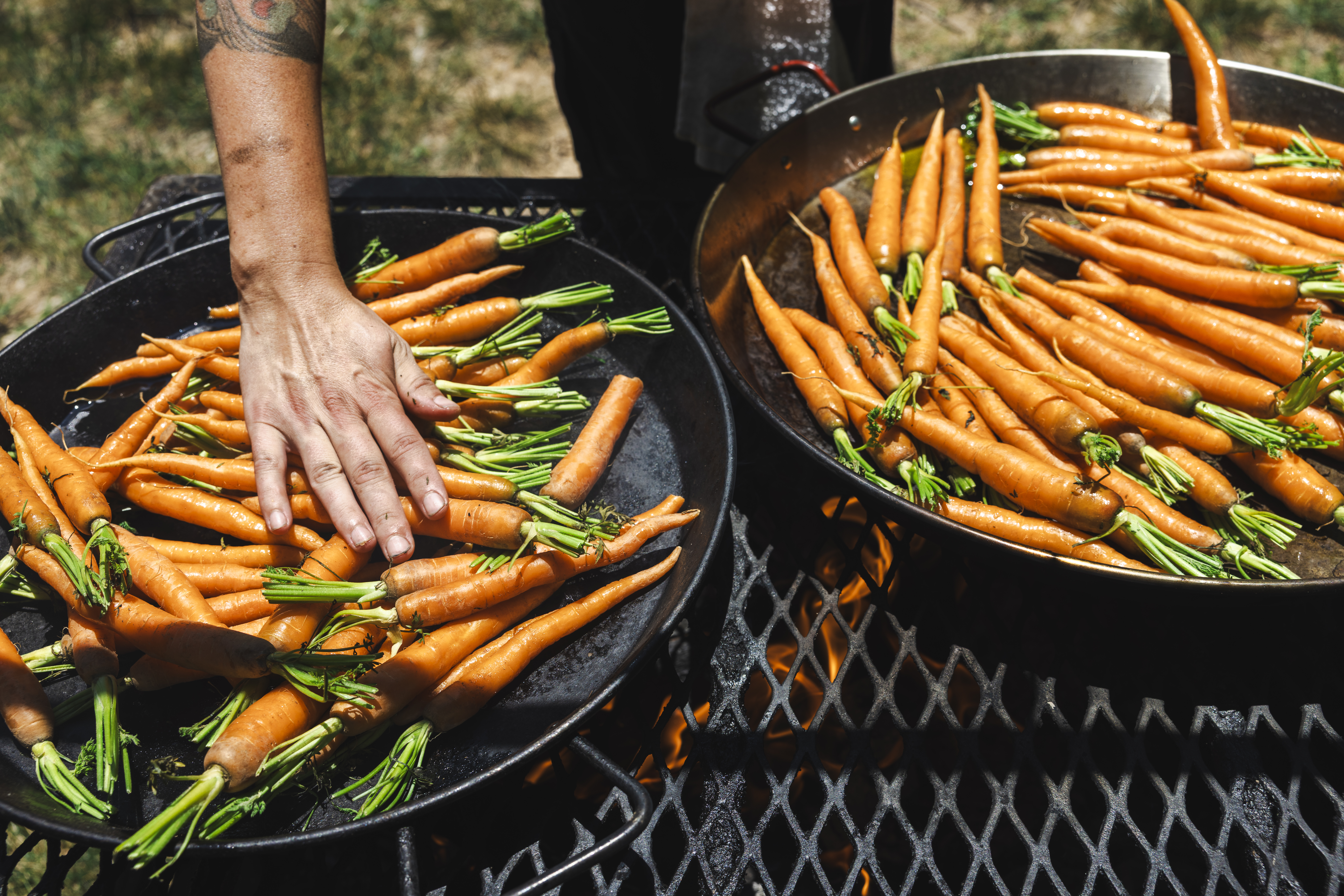
Everything changed during her internship at Farm & Sparrow, a James Beard-nominated bakery in Asheville — now a seed project and mill — known for its wood-fired, naturally leavened bread made with fresh-milled local grains. That’s where Rennie found fire.
“I learned the life cycle of every process,” says Rennie. “Being part of the fire, seeing the result of how much wood you feed it, and what that means that day and the next day. Everything was connected.” Fire became another variable to obsess over, and she was hooked.
She also learned to trust her gut. Early on, she asked the pastry chef how to know when the croissants were proofed just right. The answer? Follow your gut. “That is the biggest piece of advice I can give to anyone in baking, especially natural fermentation,” says Rennie. “We can show you the steps, but it’s a personal process. You’re going to make mistakes. You’ve got to feel your way through.”
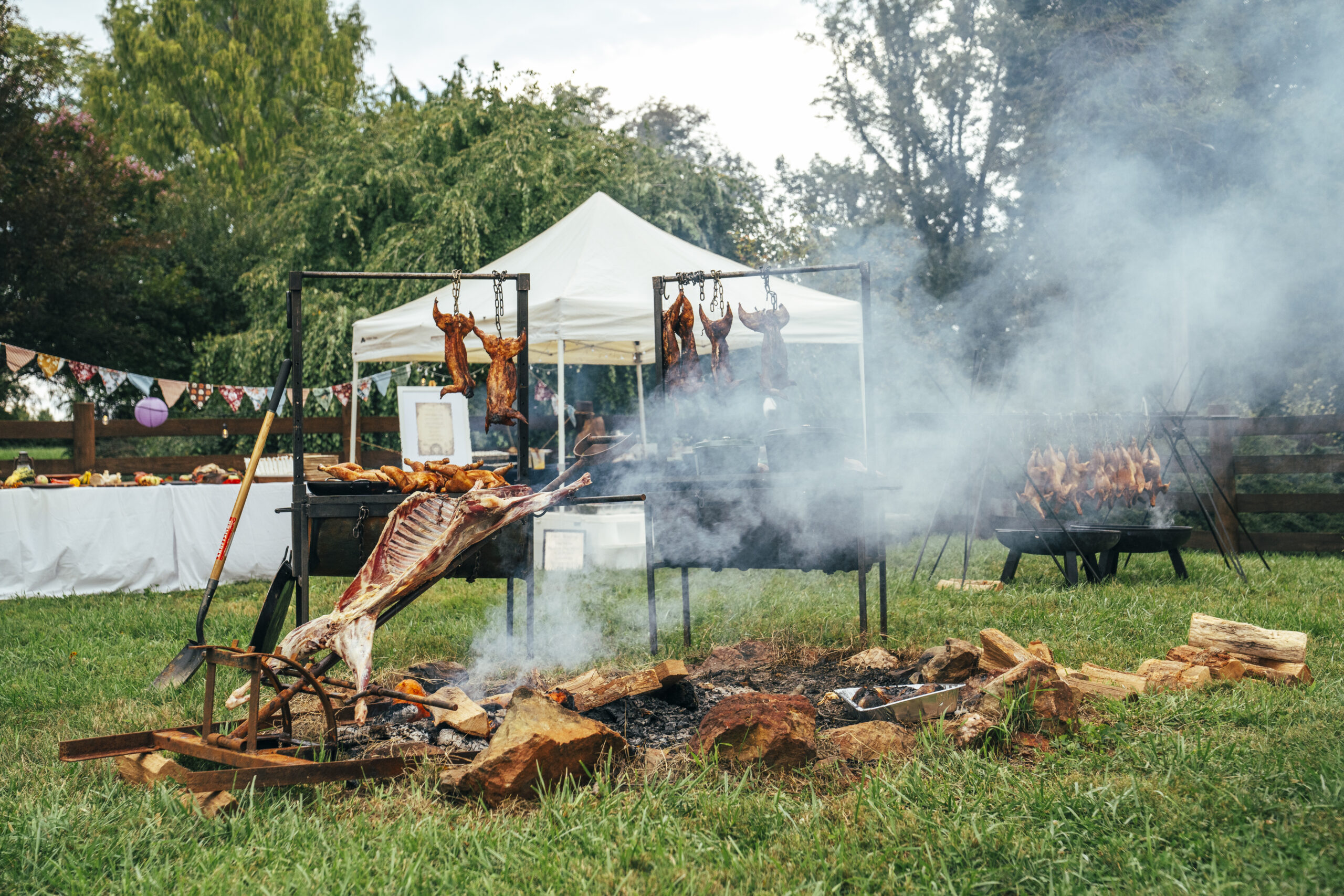
After Farm & Sparrow, Rennie dropped out of culinary school and committed to wood-fired baking full time. In 2015, she joined the team at Sub Rosa in Richmond, another James Beard nominated wood-fired bakery. It was there that Evin Dogu, one half of the sibling bakery owners, taught Rennie to listen to her heart. “Go with your heart” was heard often at Sub Rosa, and for Rennie, it went beyond just the bread. “Anything that has to do with relationships or life or bread, you’re just kind of feeding the oven.” Following your heart means trusting your instincts until they become habit. And nurturing yourself as much as you’re nurturing the fire.
She stayed at Sub Rosa for six years, building fires in the double decker oven, baking bread and croissants through some of her life’s darkest chapters. Rennie lost her brother in 2016. After her mother passed away from brain cancer in 2018, Rennie’s gut told her that she had to step away. She, metaphorically speaking, needed to tend to her own fire.
First came a trip out West, riding horses and cooking meals over campfires with a group of women in Wyoming. Then came Argentina. Mongolia. More horses. More fire. Rennie processed her grief slowly, one ride, one meal, one conversation at a time. “It was nice to be out in the middle of nowhere with a bunch of cool ladies, riding horses, eating food,” she says. “I could talk if I wanted to, but also just be taken care of.”
What stuck with her most from those journeys wasn’t just the landscapes, it was the smells of fire-cooked meals and the collective effort of feeding each other. In Argentina, she helped gauchos roast a calf that had broken its leg. In Mongolia she made cheese, stirring reindeer milk heated on a wood stove. Throughout all of her travels, fire was a connector. “Every night, the act of cooking for each other was just part of life,” says Rennie. “We don’t do that here.”
So she decided to start. In 2019, Rennie launched Two Fire Table to recreate the kind of communal hearths she experienced abroad. “Lots of conversation happens around a fire,” she says. “It gets everybody’s mind off whatever is going on,” be it blazing forest fires, wars abroad, or technology changing the ways we interact with each other. “It’s hard to be on your phone when you’re near a fire,” says Rennie. She made it her mission to create a hearth, a nurturing and nourishing community space wherever her fire-fueled mobile kitchen popped up.
At five foot two, Rennie designed all of her equipment to fit her small frame. The name Two Fire Table comes from her grills: waist, table-like frames with halved steel drums to hold the coals. “Everything is made for me to be able to handle it,” Rennie says. And she does, loading everything, including her own firewood, in and out of events with her Subaru, no trailer attached.”
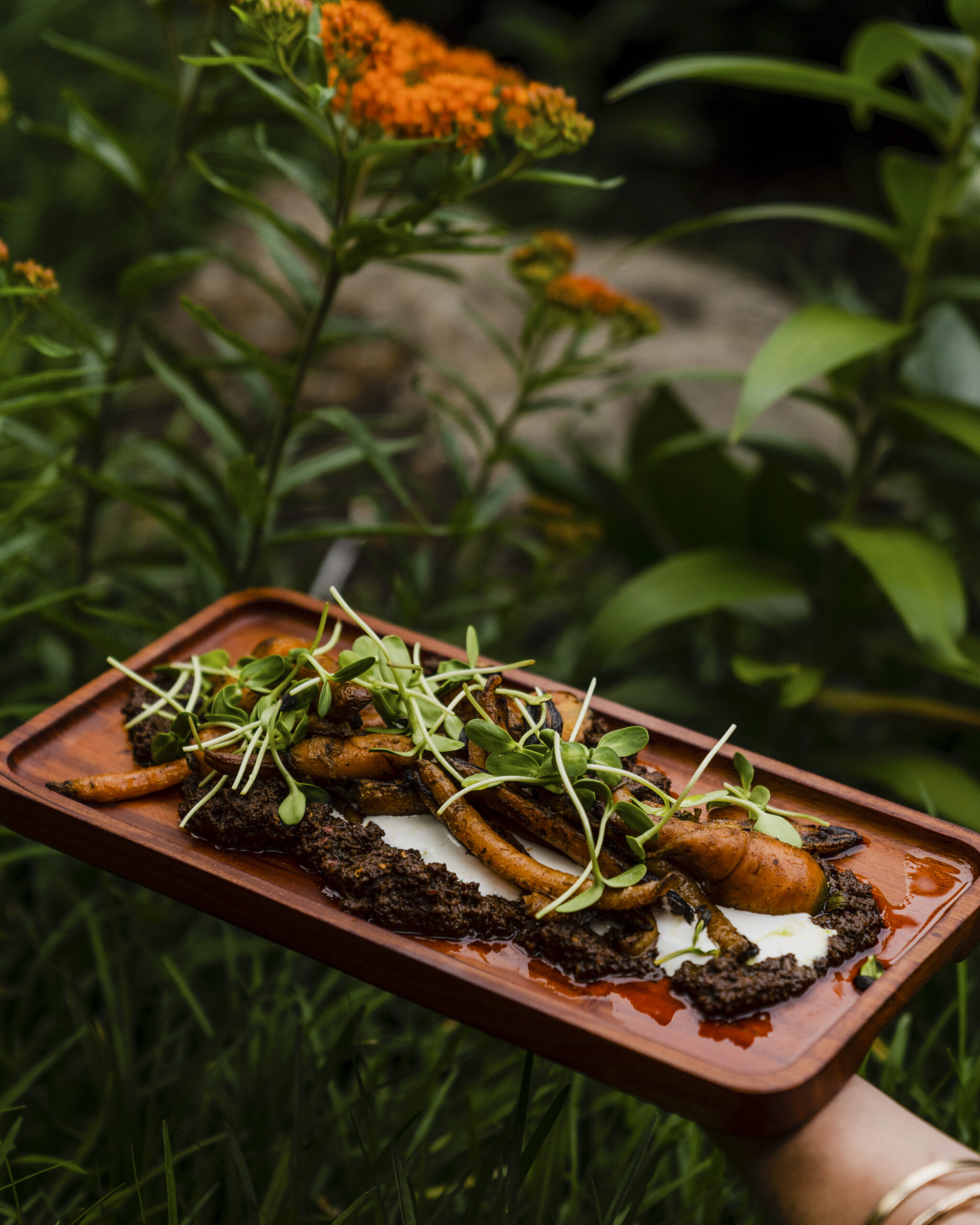
Meals are always served family-style, a deliberate gesture in a time when passing plates is becoming a lost art. “I’m sure it has something to do with my loss of family and missing that kind of connection,” Rennie says. Before each meal, she welcomes guests with a reminder: Take care of each other. Pass the plates. Make sure everyone has enough. Rennie is intentionally preserving the tradition of nurturing from the hearth, a continuation of the women who have gone before her.
Naturally, people have taken notice. She’s received calls from cooking shows about joining barbecue competitions. But Rennie isn’t interested in going on TV. “I’m nervous to get any bigger because I’m not going to have any fun anymore,” she admits. “I just want to cook for people and have fun with my friends doing it. And that’s what I’ll continue to do.” Growth is happening, but at her own pace. She’s currently working on building out a prep kitchen after struggling to find affordable shared space. A restaurant, though? She’s taking her dad’s advice there. “No restaurant ever. I’ll never do that,” she says. For now, she’s content stoking coals and feeding people in the open air.

Sarah Golibart Gorman is a writer and educator with one foot sunk in the marsh mud of Virginia’s Eastern Shore and the other planted in the Shenandoah Valley food scene.You can find her work in The Bitter Southerner, Garden & Gun, C-VILLE Weekly, The Harrisonburg Citizen, JMU’s Madison Magazine, and Edible Blue Ridge where she was named a 2024 Best of Edible Award finalist.She also develops recipes and stars in cooking videos for Shenandoah Valley Orchards.Her first documentary, ¡Hola, paisano!, will premier October 2025.Catch her adventures on Instagram @friendlycityfoodie.
Culinary anthropologist and visual storyteller, Daniel James (DJ), has farmed, documented, and studied agriculture across the country and around the world for over a decade. He strives to build relationships between cultivators, cooks, and consumers through his company, HERD Ventures. Beyond his lens and pen, DJ dons many hats in his quest to foster a more connected world through food. From being a consultant, local TV host, and musician, to an obsessed cook, he weaves together diverse threads of creativity to spark conversations and inspire connection. In all his work, DJ shows high esteem through his art for the sources that nourish us, the farmers who cultivate the land, and the chefs who inspire.
